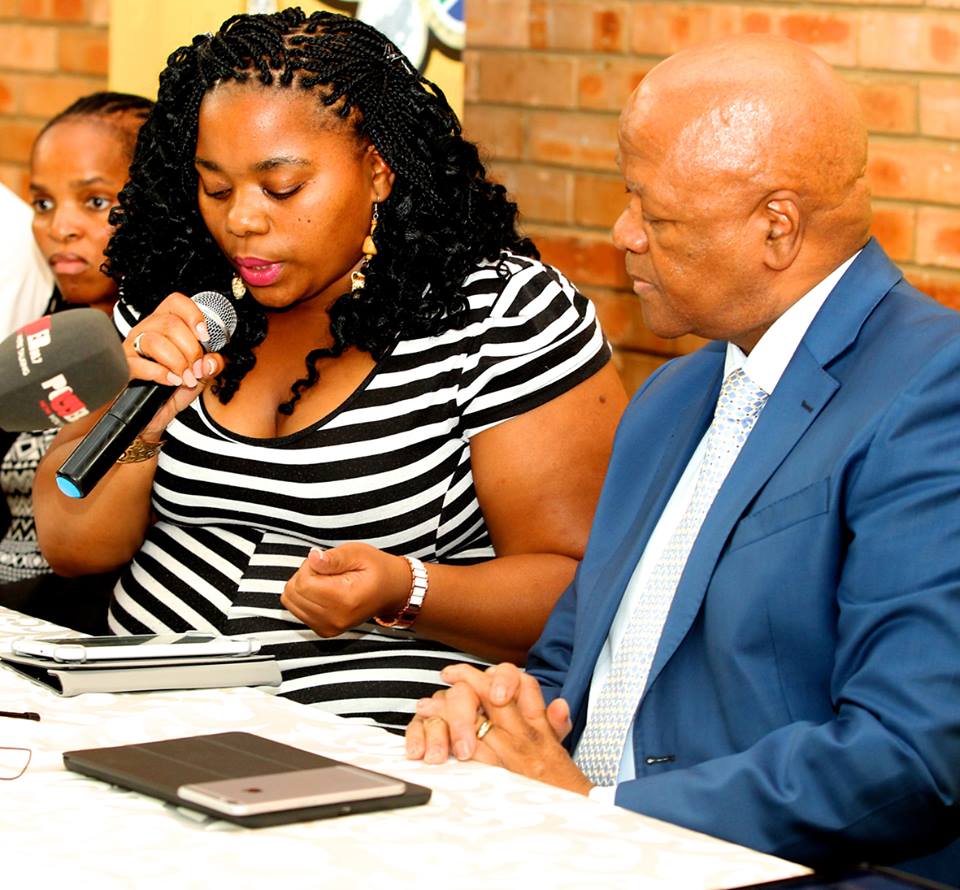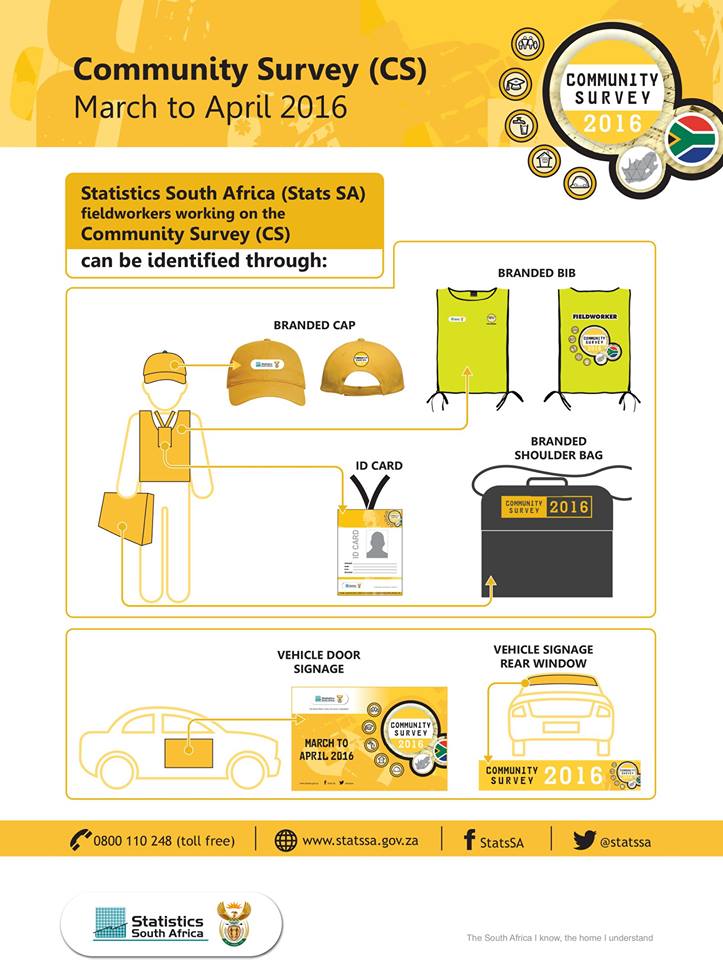Statistics South Africa ready for Community Survey 2016
Statistics South Africa ready for Community Survey 2016 andileMinister in The Presidency Jeff Radebe, and the Statistician-General, Pali Lehohla, recently launched the Community Survey 2016 (CS 2016) in Mamelodi, east of Pretoria.
 The CS is a large-scale household survey conducted by Statistics South Africa (Stats SA) to bridge the gap between censuses. Its purpose is to collect information that will assist government and the private sector in planning, evaluating and monitoring programmes and policies.
The CS is a large-scale household survey conducted by Statistics South Africa (Stats SA) to bridge the gap between censuses. Its purpose is to collect information that will assist government and the private sector in planning, evaluating and monitoring programmes and policies.
The CS, which will run over a six-week period, will provide official statistics on living conditions which include water, electricity, sanitation as well as education levels and employment at municipal level.
The launch was held at one of the 330 training venues where Stats SA is training more than 10 000 contract staff who will be collecting information from more than 1.3 million households in every area of the country from 7 March to 22 April.
Minister Radebe said the Community Survey is bigger than any project Stats SA conducts outside of the census. In the 2007 Community Survey, 300 000 dwellings were sampled. This year, CS 2016 will visit more than 1.3 million households.
The CS 2016 will use the Computer Assisted Paper Interview (CAPI) methodology to collect data digitally instead of the traditional paper method. The new technology has reduced the cost of the survey from an average of R2 000 per household for a paper-based survey to just R200.
The other benefits of using the new digital device include an improvement in the quality of the data collected because of inbuilt controls in the electronic questionnaire. Also, the use of geographic navigation capabilities will ensure that fieldworkers enumerate houses that have been selected.
Using CAPI also greatly reduces the amount of time it takes to release results once the survey has been completed. During Census 2011 results were released a year after the collection of data had been completed. This year the CS 2016 results will be released by the end of June 2016, just two months after the completion of data collection.
This improvement in turnaround time bodes well for the upcoming local government elections because citizens will be treated to objective data that talks to what has been delivered and what remains to be done. Also, citizens will be able to make decisions based on this helpful body of evidence. More importantly, they will know what they as citizens have to do in order to change their lives.
It also means that local municipalities will have the ability to draw up plans based on data that is current and not outdated. The speed with which the data will be delivered can contribute to deepening the country’s democracy.
Municipalities will have to deliver to constituencies that can hold them to account because of the almost instantaneous availability of the new data.
Statistics should be embraced as a fundamental part of our democracy. It should be viewed as a conduit of trust amongst citizens and amongst nations. Statistics can help to improve the quality of democratic debate, by providing reliable indicators which are vital for decision-making.
The Minister called on all South Africans to rally behind the yellow team, Stats SA, as it begins the survey across the country to gather statistics for our nation. Open up your doors and allow the team to come in. South Africa counts because you count.
*Compiled by Statistics South Africa
For more information on the survey please contact the call centre on 0800 110 248.